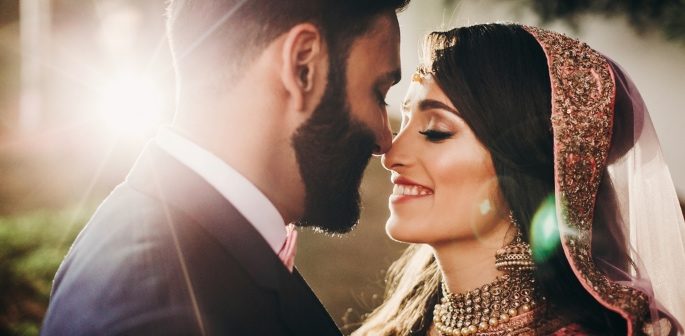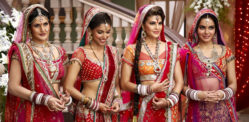“They questioned my self-respect at one point"
The pressure to marry before a certain age has always existed for South Asians in countries such as India and Pakistan.
In the UK, the pressure to marry young is still prevalent, however, an increasing number of British Asians are defying their family’s expectations.
With an increased focus on careers, young British Asians as a whole are getting married at a much later age.
Younger generations are no longer conforming to societal expectations within the South Asian community.
DESIblitz explores this important issue.
Love Marriage
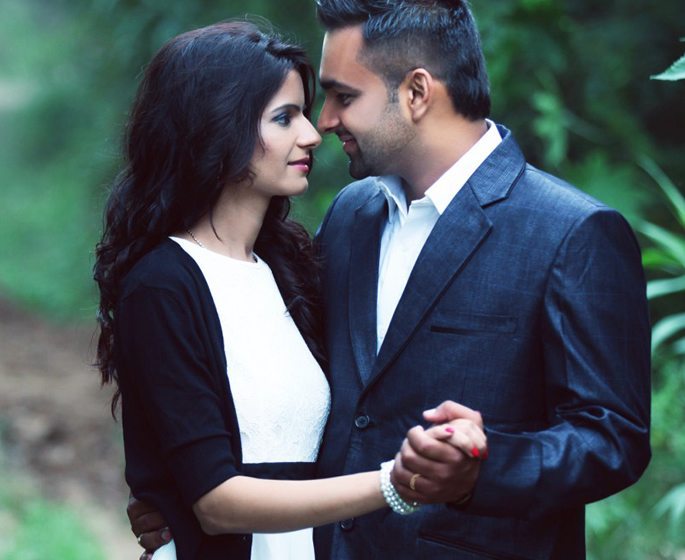
Amongst young British Asians, love marriages are becoming more common.
The use of online dating sites and apps is one of the reasons as to why love marriages in the South Asian community are on the rise.
Alongside careers, new-found independence and more choice, British Asians are no longer abiding by cultural norms and traditions.
British Asians also have a lot more freedom compared to older generations. With love marriages, the element of choice and freedom is what attracts people.
The dating scene for British Asians is also expanding.
Whilst arranged marriages are still favoured, the South Asian community, especially in the UK, is becoming more accepting of love marriages.
An increasing number of British Asian parents are also more likely to accept and quietly encourage love marriages if it means that their children are happier.
Shinoj Kumar says:
“I met my wife when we were both at university. We started dating in our final year.
“When we told our families that we wanted to get married, they were surprised but happy for us to go ahead.
“I think our families were more surprised at the fact that we were secretly dating and how we managed to keep it quiet for so long.”
Issues may arise with a love marriage when both families become involved.
Judgement and differences in religion, background, caste, status and culture have the potential to create problems.
It can be difficult for some love marriages to resolve or endure their issues due to concerns from family and society’s perception of them.
Arya Kuldeep says:
“I had a love marriage and my family didn’t approve at all. Me and my husband were in our early twenties when we got married. There was a lot of uncertainty from family and friends about whether we would last.
“For a long time, my family and I didn’t speak to each other properly because they didn’t agree with my decision.
“My husband and his family stood by me when things got tough.
“I don’t regret my decision at all because I’m very happy but I wish my family respected my choice earlier and stuck by me.”
Arranged Marriage

Arranged marriages are relatively common in the UK and the Indian sub-continent, and have been for a long period.
The concept of arranged marriage is mainly respected by members of the older generations in South Asian communities.
Alongside approval from parents and their direct involvement, age is also a key factor for arranged marriages.
Many older generation South Asians plan to get their children married and settled before the age of 30.
Arranging or ‘fixing’ a marriage has traditionally been considered as a prime role for relatives.
However, younger generations are challenging this tradition by not marrying in their early twenties and instead focusing on their career aspirations.
The strong South Asian tradition of dowry (daj) is also shifting.
‘Western’ Asians nowadays increasingly want to marry at a later stage in their lives and want to choose their partners.
Anita Rai says:
“I’m in my late twenties and I’ve been receiving plenty of hints from family about marriage and that ‘I’ll be next’ as my cousins of a similar age are either engaged or married.
“I have no plans on getting married anytime soon. I work full time and I attend university. I’m studying for my master’s degree.
“I don’t feel I’m ready to settle down yet as my life hasn’t even started in my opinion.
“I have a lot of ambitions and goals for the future in regards to my professional development and I just don’t see a partner standing next to me, and I’ve realised that I’m fine with that.”
Inderpreet Singh says:
“When I was younger, I thought I would be married, be a father and own a house before the age of 35. But I’ve learned that’s simply not realistic.
“As a young British Asian man, I don’t feel like I need to abide by cultural norms.”
“I’ve been raised in an environment where tradition was everything. But once I stepped outside of the family home, I realised there’s so much more to life than following in every South Asian’s footsteps.
“I won’t be getting married soon. I’m 34 and I sometimes get funny looks and comments from older South Asians at functions.
“But I simply don’t want to marry yet and that reason alone should be enough. I shouldn’t have to justify my decision.”
Some individuals may favour the idea of an arranged marriage. This is because they do not have the time and opportunity to meet a potential partner as a result of their career or education.
These British Asians may encourage and welcome the opportunity to have their marriage arranged by their family or a matchmaker.
Sangeeta Dhillon says:
“I’m very pro arranged marriage as I had one myself and I got married when I was 24.
“I’m now 28 and I don’t regret getting married at a fairly early age at all. If anything, I’m glad I did because now I can fully focus on my career and I have the time to do so.
“I also don’t have to worry about starting a family because I had my son when I was 25.
“I would say that I am a logical person. Getting married before the age of 30 for me was a big deal because I wanted to be able to have children whilst I was young.
“Having an arranged marriage when I was young worked out great. I trusted my parents to find me someone from the same or better ‘level’ than me.
“I knew that if my parents found someone that they would come from a good family and have good values.
“I didn’t want to be worried about whether I’d meet someone and my age would be a deciding factor when choosing someone to settle down with.”
Arranged marriages are not exactly as they used to be in the past. As times have changed, so has the concept of arranged marriages.
Modern arranged marriages are favoured by British Asians. They allow for a more informal and relaxed atmosphere and are closer to a love marriage setting.
The reduced amount of involvement from families, in some cases, works well for potential couples when meeting for the first time.
Modern arranged marriages focus on the introduction and from then on, the individuals spend time getting to know each other before making the final decision.
Forced Marriage
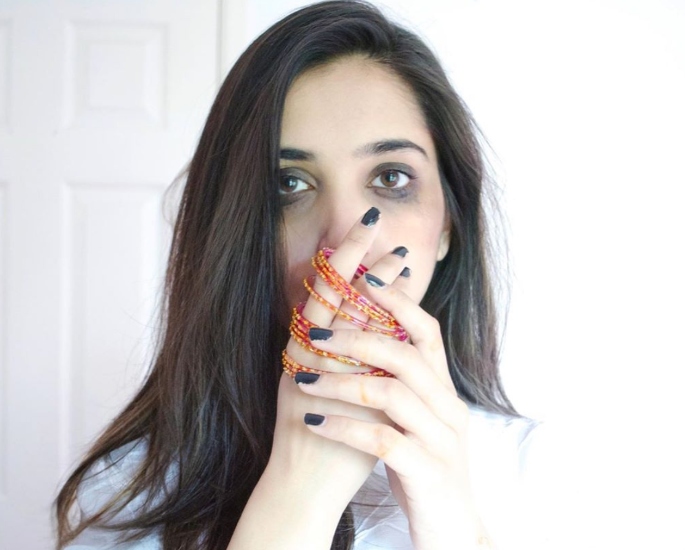
Despite the rising number of young British Asians marrying at an older age and refusing an arranged marriage, some young people still largely rely on and trust their parents to find them a partner.
This is especially common in countries such as Bangladesh and Pakistan.
There also seems to be a fine line between forced and arranged marriages.
Forced marriage is essentially a form of social control. It is put in place to ultimately control female sexuality and protect family honour.
The number of reports of forced marriages continues to grow, specifically involving British Asian girls. They are forced to marry boys in the Indian subcontinent.
Whilst British Asian boys are forced to marry as well as girls, the number of reports is usually significantly lower.
Arranging a close relative’s marriage at a young age (without their consent) reinforces the power that South Asian parents have over their children.
The government’s Forced Marriage Unit (FMU) reported more than a quarter of the 1,196 reports it received in 2017 involved victims below the age of 18.
A 2018 report published by the Home Office and the Foreign Office stated that the statistics only represented reported cases:
“Forced marriage is a hidden crime, and these figures may not reflect the full scale of the abuse.”
Divorce

While many arranged marriages do work out well, there is also an increasing number of British Asian couples who regret their choice and turn to divorce.
Couples who marry at a young age may view divorce as an option for a variety of reasons.
A few examples include not getting along due to differences in their respective outlook on life, interests, ambitions or upbringing.
Manoj Reddy says:
“I convinced my parents to let me get married to a woman of my choice and we ended up getting divorced 3 years later.
“All was fine initially but after a couple of months of living together, we began to argue about petty things.
“Arguments would escalate and my ex-wife was verbally abusive towards me many times. She taunted me about my career and how much money I made.
“After 3 years, we separated. My parents were incredibly supportive and helped me out despite the fact they initially didn’t approve of me having a love marriage.
“It’s hard to admit but I regret marrying my ex-wife without knowing her true nature.”
Traditional gender roles can also impact a young couple’s marriage.
The woman may want to work, delay having children or socialise with friends often. Whereas, the man may want her to stay home to pursue a traditional family role.
Looking after the children, performing religious activities and doing the housework are still duties expected to be undertaken by South Asian wives.
Shivani Brahmbhatt says:
“I was working for an IT firm when my parents arranged for me to meet my ex-husband. He was 7 years older than me and the age difference for me was a turn-off.
“We also lived and worked in different cities so I had reservations about meeting him.
“Nevertheless, my parents told me to get married to him because he had a good job and supposedly came from a good family.
“We got married and everything was fine for a while. As time went on, commuting back and forth between work and my new home wasn’t ideal for me. I proposed moving house to my ex-husband.
“He demanded that I resign and that he didn’t expect me to continue working after we got married anyway.
“A year later, we got divorced. I realised that he wanted a wife who was willing to stay home and cook for him.
“I understand many arranged marriages are successful but mine wasn’t. I didn’t want to endure it to try to make things better.”
Getting married at a young age may also result in divorce as both parties may require room for growth and self-awareness.
Being married at a young age may also halt a career on the rise.
Ultimately after marriage, the next step is starting a family. From then on, returning to work as a South Asian woman is not viewed pleasantly, especially by members of the older generation.
Intergenerational Issues
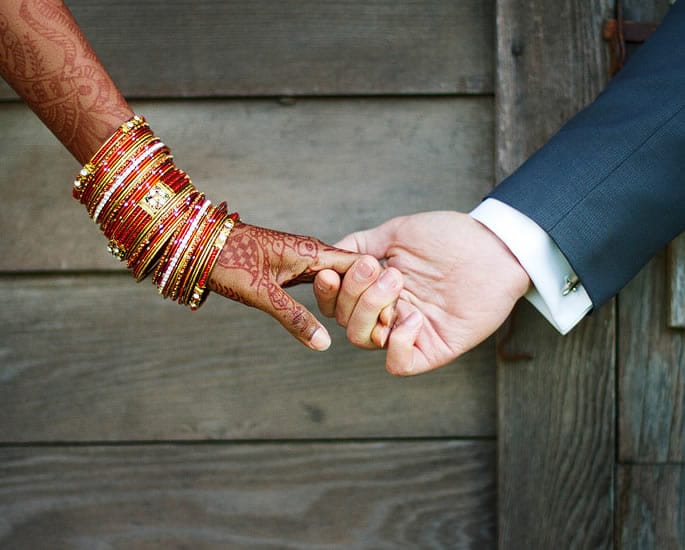
Many young British Asians struggle between making their own choices and complying by their parent’s decisions.
Some older generation members are neither accepting nor willing to adapt to the changes that are taking place regarding the lifestyle choices of young British Asians.
Navneet Sandhu says:
“I think the older generation doesn’t understand young British Asians most of the time. We were born in the UK so it’s normal for us to adopt a more Western lifestyle.
“Dating and sex before marriage is something that I think needs discussing more to the South Asian community.
“Sex before marriage is seen as not acceptable. But I think no knowledge or experience of sex is more likely to cause problems in a marriage and lead to infidelity.
“The expectations and customs, such as early marriage, that British Asians are expected to follow just don’t make sense when living in the UK. It’s simply not realistic.”
Many older generation members of the South Asian still expect their children or grandchildren to marry before a certain age and start a family.
These intergenerational issues may lead to emotional distress amongst British Asians who feel they don’t fit the mould.
Not meeting the community’s expectations may lead to cases of depression, anxiety, and poor self-confidence.
In most South Asian households, children are brought up to be obedient and respectful of the elders around them.
Diverting from the cultural norms (e.g. marrying at a later age or not marrying at all) may be perceived as rebellious.
Sheela Mishra says:
“Personally, I don’t think late marriages are a big deal. I understand why South Asian parents think otherwise though because they’re simply thinking of grandchildren.
“But that is an issue too, making the assumption that every woman wants to have children following marriage.”
Ricky Anwar says:
“Marriage has never appealed to me. I grew up in a very traditional South Asian house so my outlook on marriage has never been agreed with.
“For me, it’s not a case of getting married later or delaying it, I just don’t like the idea of it and it’s not something I’ll be doing.
“I accept that this is different from the norms within our community.
“I’ve been in relationships but I feel the proposal of marriage would change everything.”
Dating Without Marrying

For British Asians, dating without the intention of marrying usually occurs when the individual no longer lives in the family home.
Dating can be difficult for British Asians due to close family units and cultural values upheld by older generations.
For many British Asians, dating without the intention of marriage can be a conflict between what they want and their family’s expectations.
Deepak Singh says:
“I think dating as a British Asian man can be difficult.
“I often feel stuck between wanting to go out and socialise like my friends and keeping up appearances for the sake of my family.
“I can’t imagine explaining to my parents that it’s normal for me to go out and date.
“I don’t blame them for anything though. I know they’re part of a much more traditional generation.”
There can also be problems when inter-caste, cross-faith and cross-nationality relationships are formed.
Gender differences also occur in regards to dating as a British Asian.
Men are more likely to not receive the consequences of drinking, smoking and having sex before marriage. Whereas, women are treated a lot differently in the South Asian community.
Maya Kuroda says:
“I went out with a guy when I was younger and once my family found out. They kept on encouraging me to get married to him.
“It felt very strange explaining to my parents that I didn’t want to get married to him but I still wanted to be in the relationship.
“In their minds, dating just for fun didn’t make sense and was a waste of time.
“They questioned my self-respect at one point. They said they felt embarrassed because apparently everyone in our neighbourhood knew that I was openly dating someone.
“It was frustrating because I have male Asian friends who openly date too. They’ve never received any unnecessary comments from family and friends.”
Marrying at a young age for some parents may mean the western norms of socialisation will not affect their children.
An example of this is socialising with members of the opposite sex and dating before marriage. This could also include sexually transmitted diseases and unwanted pregnancies.
South Asian parents may fear their children going astray through western influences.
In reality, many British Asians are engaging in sexual relationships. This is usually hidden from family members.
When family members have discovered that their daughters have decided to rebel against the family’s wishes for marriage, there have been dire consequences.
To preserve the family’s honour, there are instances where girls have been murdered in the UK. This is known as honour-based violence.
There is no doubt that the tradition of arranged marriage and the cultural norms around marriage will continue.
However, as a community, we need to acknowledge that getting married at an earlier or later stage in life is not of great importance.
Times have changed and things will continue to change.
Young British Asians want the choice to exercise their right to marry whoever and whenever they want, regardless of their age.




















































